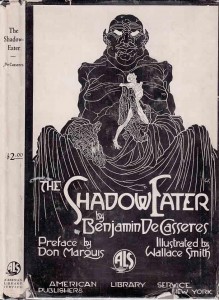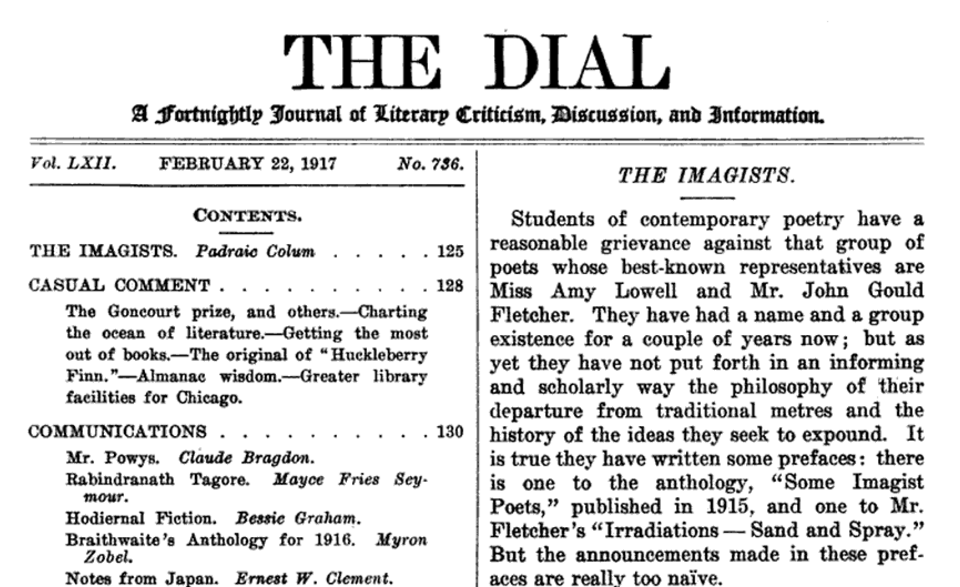The following review was published in The Dial, Vol. LXII No. 756, February 22, 1917.

Mr. Benjamin De Casseres brings together in “The Shadow Eater” a group of verses in the mood of a dyspeptic Whitman. On the principle that nothing is so emphatically defunct as the fads of yesteryear, these verses make an impression of astonishing antiquity. Compared with Longfellow they are old-fashioned and bromidic: Felicia Hemans, compared with them, is fresh and youthful. All the old exploded diseases of the soul that Max Nordau took seriously, all the spiritual sores, the puny blisters, the enfant terrible attitudinizing which our grandmothers gasped at in the French and German egoists of their day, are here exhumed and ranged anew for our inspection. But the gasp turned long ago into a yawn. Tom Sawyer could not go on forever mulcting his playfellows of pennies and marbles by the exhibition of his sore toe. Those who have read Leopardi, Schopenhauer, Weininger, and Baudelaire, will find no novel shudder in this book. They will see another desperate man storming sternly, inexorably, against a Deity whose existence he has just denied. They will see him again, in a mollified mood, patting his God on the head, with a half surmise that he may himself be God. They will find the old familiar familiarity with the word “lust” and with the obstetrical metaphor. (Is the time not ripe, by the way, for a midwife’s anthology ?) They will find another verse maker who is determined at all costs to be astonishing who, when sense palls, tries nonsense, and, that failing, tries capital letters. All this was good fun fifty years ago, but the wind of the poor jest is broken. The determination to cast off all shackles of convention is carried into orthography, so that beside such words, caviare to the general, as “adytum” and “lutescent,” we have the spellings “wafir,” “tapir” (not an animal), and “cozzen”! These spellings are the features of the book which one does not remember having met too frequently before.
Now and then a line attains epigrammatic value by its vigorous compression. Here, for example. is the pessimist’s description of a human life : “The cry in the womb, the release, the hasty scud across earth, the thud in the Pit !”
Here is solipsism in a nutshell : “My soul is a fountain that balances the ball of the visible cosmos.”
Here, again, is the “cosmic foot-pad’s” word about. Love, which, for reasons analogous to those which actuated Otto Weininger, he says he “rejects”: “Love, that accouched every star in the blue, that with knout of desire sends the young worlds grunting round and round the senescent suns.”
